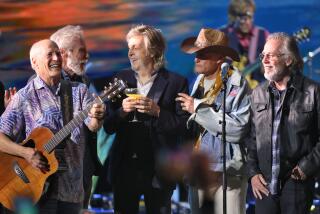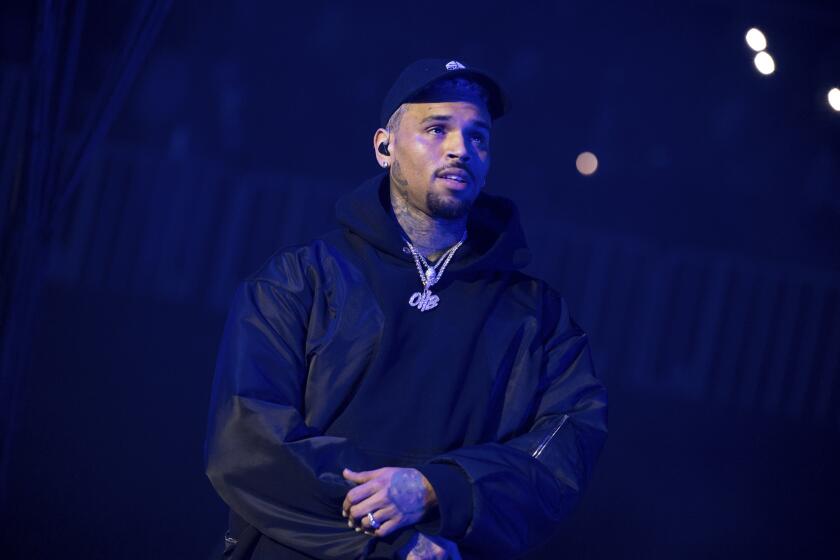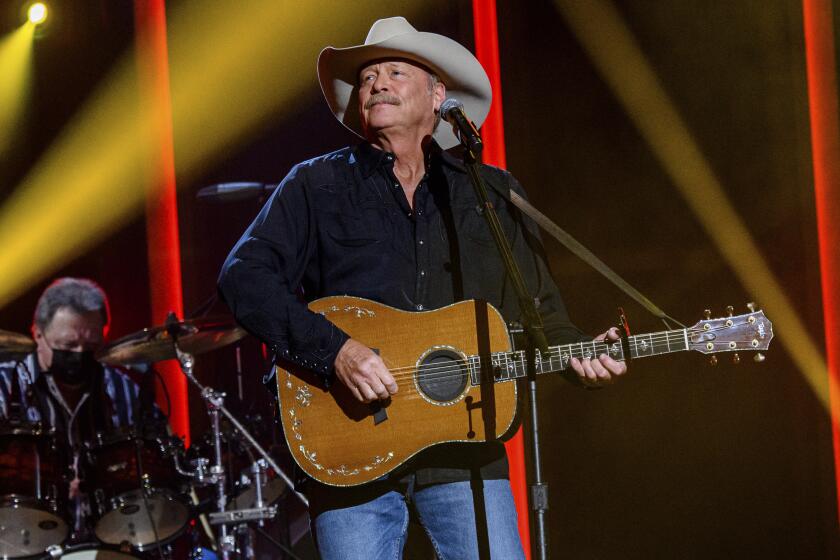JAZZ REVIEW : Local Players Boost JVC
- Share via
The big names at JVC’s Jazz at the Bowl concert Sunday night were Grover Washington Jr., Stanley Clarke, George Duke and Joe Zawinul. But the stars were largely eclipsed by a collection of local luminaries who call themselves the Meeting.
Consisting of pianist Patrice Rushen, saxophonist Ernie Watts, bassist Alphonso Johnson and drummer Ndugu Chancelor, the Meeting opened with a funk-based, jazz rap titled “Steppin’ Out” that at first suggested potentially limited musical horizons. But Watts, a remarkably versatile player whose gifts are consistently underappreciated, quickly launched into a solo that soared into the outer limits of jazz improvisation.
The Meeting continued with enthusiastic Latin rhythms, more funk-fusion and a sizzling reading of John Coltrane’s offbeat “Take the Coltrane” that firmly established their credentials as a group whose commercial potential is more than matched by their creative abilities.
Washington, in the headliner position, did what he does best--a collection of melodic, rhythmically turbulent night music. The songs were mostly taken from his two decades of chart material, with a few pieces from a new album, “Time Out of Mind,” thrown in for contemporary seasoning.
His saxophone soloing, as always, was crisp, to the point, and mildly soporific. It took a simple, Ron Carter blues line, “Blues for D.P.,” to finally trigger Washington into a brighter, more active energy flow.
Bassist Clarke and keyboardist Duke’s set bristled with electric fire and thunder. Its high points consisted of the duo working face to face, repeating little melodic fragments over and over again until the audience roared its enthusiasm. Exciting, yes, but not even remotely close to the music these two superb musicians are capable of playing.
The Zawinul Syndicate, opening the show, was dominated by the leader’s keyboard sampling, some of which sounded suspiciously like the electronically re-created saxophone sound of former associate Wayne Shorter. Zawinul managed, on a few tunes, to generate a kind of rolling, rhythmic urgency. Too often, however, the big, block chording and short, melodic snippets were uncomfortably reminiscent of the similar, but more completely developed music he once produced with Weather Report.
More to Read
The biggest entertainment stories
Get our big stories about Hollywood, film, television, music, arts, culture and more right in your inbox as soon as they publish.
You may occasionally receive promotional content from the Los Angeles Times.










